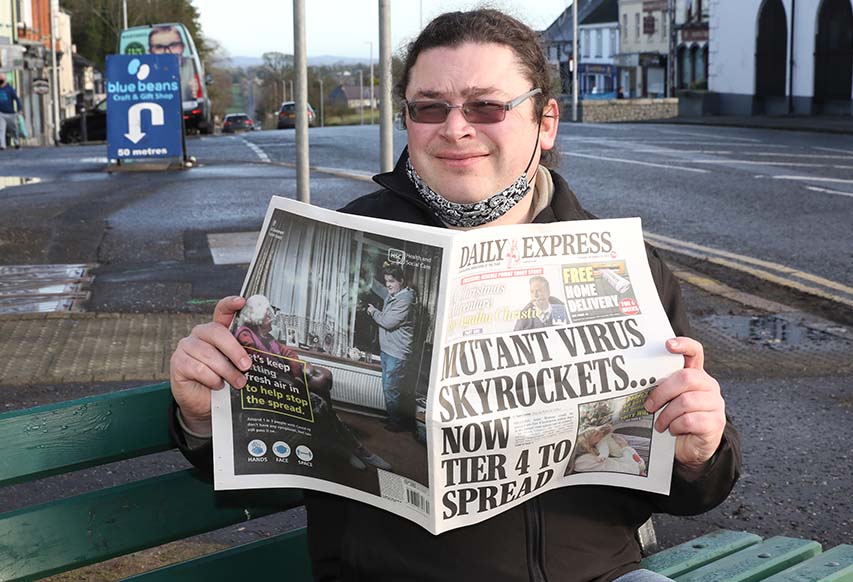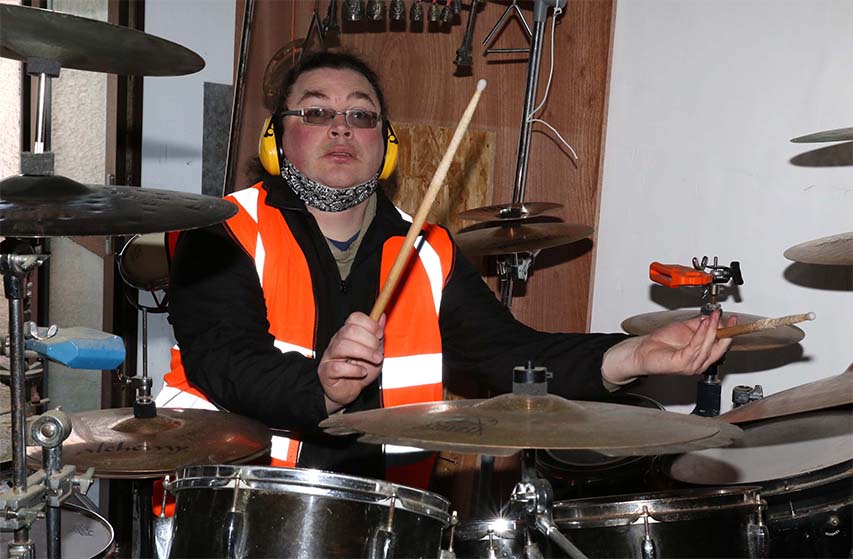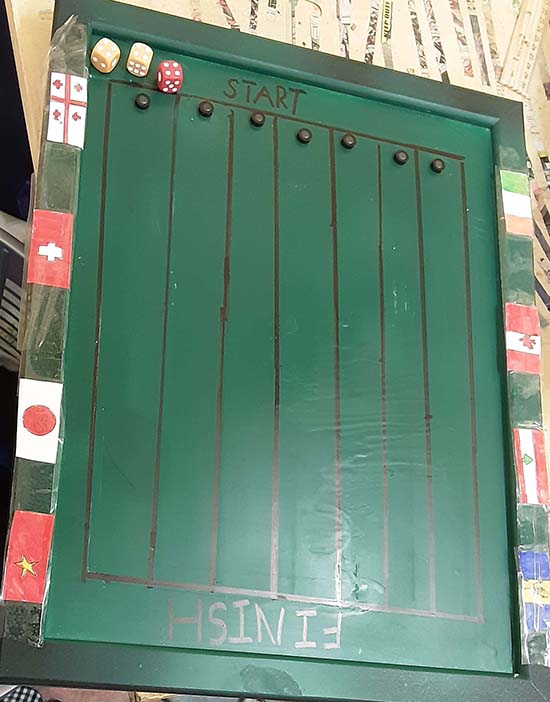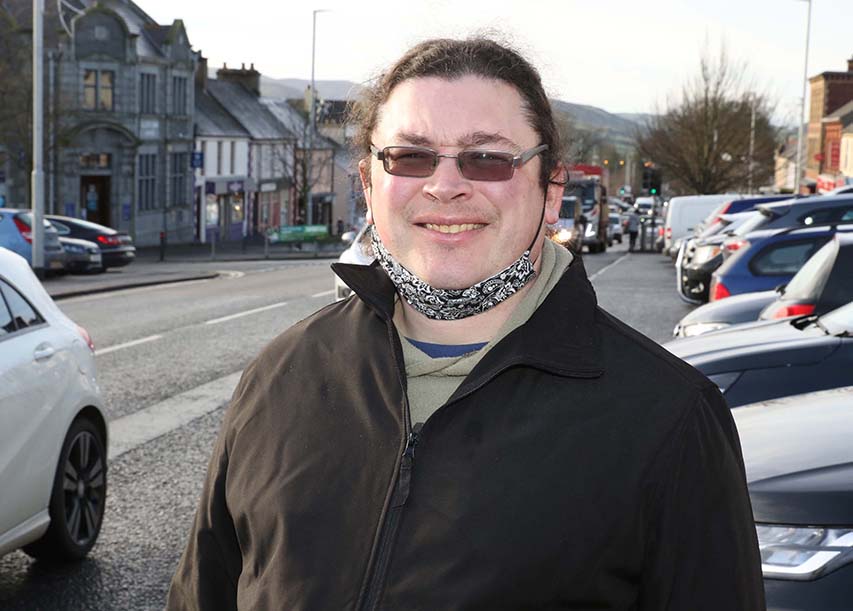A feature written by David Boden (39) from Castlewellan, who was diagnosed in his late teens with Aspergers Syndrome which is a high functioning form of autism.
Read his account of his trials and tribulations as someone on the autistic spectrum.
There are more severe tiers of autism where those affected may be unable to speak. But those in a similar band to myself can at times be extremely articulate in communication, never-the-less may at times find social circles daunting writes David Boden.
The symptoms may include emotional and communication issues, and with some people there may be other issues such as poorer coordination. Those who have Aspergers all tend to be quite unique as individuals.
In looking back over my life, I have early memories of beginning primary school and finding large groups overwhelming and not wanting to be there. I recall screaming and crying in an attempt to be dismissed. I suppose this sort of challenging behaviour gave teachers cause for concern.

And consequently I was also an easy target for bullying and there wasn’t a whole lot of supervision back then in the playgrounds etc as there is nowadays.
I remember doing IQ tests with an educational psychologist which resulted in being moved to a unit in my middle years of primary school. It was a smaller group with a very kind teacher. The other children seemed friendlier and the general atmosphere was a lot more relaxed.
As a result I felt I was progressing but the term ‘Aspergers’ was not heard of. There were early symptoms of dyslexia which I soon outgrew. Gradually words and memory became my forte.
In 1993 at the age of 12 I began my secondary education in St. Malachy’s High School Castlewellan. Whilst still in the special unit, I integrated with my main stream class for history and English as they were areas in which I excelled.
It was interesting that by this point, Aspergers Syndrome was still not defined as a disability and as a result support mechanisms just were not in place.
I believe I was introverted and happy to be so, but I think the transition of bigger groups in a much larger building proved a challenge. My escapism or coping mechanism was peculiar behaviour which ranged from memorising time tables to playing the air guitar. You could say the symptoms of both a genius and a lunatic were on display which once again left me open to abuse.

Aged 14 in 1995 I got my first part-time job. I tidied up and fed animals on a local farm. Being a teenager earning a wage in an adult world felt liberating. However I was oblivious to the dangers of such a working environment.
I often daydreamed and failed to meet the demands of the job. Later I would be dismissed. But I found working with animals very enjoyable and fulfilling.
Back then I was quite unattentive and there were tasks I just did not and probably could not then complete. A strict work environment that was task organised was maybe not the best place for me to work in as I was eventually going to miss out some of my duties. But that was all part of my learning curve and helped me to understand what I was doing that just did not fit in.
A year later I gained weekend employment washing dishes in a local hotel. At times exciting but often it was demanding. I felt an affinity with the hospitality industry. The appeal was regular hours and the opportunities to climb the career ladder.
I left school in 1998 and transitioned to Downpatrick college to study catering.
Soon the expectations overpowered my enthusiasm and I was often dismissed from work placements. My behaviour would have been disruptive at times. I then came to the conclusion catering was an excuse to leave school but previous obstacles remained in place.
Music was my true passion having drummed since my mid-teens and previously dabbled on guitar. In 2000 I left home for the first time and moved to Bangor . It was there where I enrolled to study music with the career goal of producing records.

Theoretical aspects of music like sight reading proved an obstacle for me. It also took away the spirit and satisfaction of hearing an existing piece of music and improvising something that fitted appropriately.
I was also battling with depression and like many students, became immersed in a party lifestyle which foolishly took priority. This resulted in having to repeat my first year. For assignments and performances I was more applied from being allowed the chance to repeat but still failed to meet the standard they required in music theory. I just could not focus on the educational targets being set for me.
The summer of 2002 became an unsettling time for me as my future was being dictated by exam results. I was extremely depressed and behaved rather aggressively. This involved a two week spell in Finnieston House where I got the heart-breaking news that I could not continue my studies.
I returned to Downpatrick college where I enrolled in an essential skills programme . Much of what was on offer was numeracy and literacy at an intermediate level which I could already do. Nothing they offered motivated or satisfied me, apart from art.
I’ve always been drawn to visual expression, as well as music, and creative writing. There is a great sense of liberation in the expressive arts, akin to sciences allowing one to discover what they never knew about themselves.
Feeling disillusioned I decided to take some down time to try and unlock my potential. Working with a psychologist I was introduced to The Drake Music Project in Newry, enabling disabled people to compose using computers.
In around the same period I expressed an interest in training for some kind of career in music. I had a placement in Marcus Music shop in Belfast which later led to being paid. After a year I was let go but studied a variety of arts such as literature and history of art with The Open University.
I undertook various other ventures allowing me the opportunity to travel and pursued a five year romance. But it was January of 2015 that the real me came to fruition when I began attending Pop Up Art, an art therapy group based in Downpatrick which started upcycling furniture.

By a happy accident I discovered them at work in what was then the social enterprise hub in Downpatrick at the back of the Grove Shopping Centre. I introduced myself to Manus and Ailish who ran Pop Up Art, whilst showing them some drawings and I was instantly welcomed.
To this day Pop Up Art has been my mainstay. It has been an endless lifeline offering counseling, friendship, social outings and training in suicide awareness, cognitive behavioural therapy, and makaton.
I have come to understand that my life is intertwined with other people and that life just does not revolve around my actions and I must take responsibility for my actions. I attend two days a week and often go on their weekly walk. Walking is an important activity as it tunes up our bodies, stimulates the mind, and provides some social company.
I have encountered hardships in my tenure at Pop Up Art but wouldn’t have got through them had the said project not have existed. It is like a second family which is constantly expanding. Aside from excelling as an artist. I’ve learned to be more giving and empathetic of others.
Aspergers can be a difficult condition to work with. It’s a psychological condition, something very difficult to put your finger on. But I am making great strides and education itself has played a key part in this. And socialising with people and groups too has been great and very therapeutic.
People do need to be more understanding about people generally with mental health issues. It is a very difficult area and often there is a stigma which makes communication difficult. But I understand that the NI Executive are now doing a consultation of a mental health strategy and I really hope it helps to make life earlier for those who suffer these issues but also for the people they are in contact with who also experience at times difficult emotions when in contact. Therefore education and understanding are very important to moving this forward and making our society more mental health friendly.
Life has been a constant struggle for me. I have had the support of my family and the health services and I now get of with life as best I can and enjoy every day as it comes.
We all have a role to play in understanding mental health. We are not all made the same way. Some of us are very different, but not all that different!
2020 has been a turbulent year for all of us. We all have issues to manage and contend with on a daily basis. The addition of Covid has meant the challenges in all of our lives are increased. I do believe dangers can be a catalyst in positive change.
In this last year I have spent a lot of time in solitude, as have many of us. There are times I enjoy being in solitude and other times I like to be part of a group. Physical and mental wel- being should be everyone’s priority. Whilst isolation has been a challenge for me, it has also afforded me more opportunities to be creative.
In being industrious I have found there to be fewer opportunities to ponder. I cannot promote the importance of being proactive enough in these testing times.
Hygiene is also very important in fighting this current pandemic which I hope goes away in 2021. None of us could have foresaw this current scenario but joint action by us all should help make the Covid-19 virus less dangerous.
Accepting that change is everyone’s responsibility. Lock down has been a success and is now ended in New Zealand and Isle Of Man. This is the game changer that we all need to follow. I just hope to inspire others that life is worth living by not taking risks with transmitting Covid-19 lightly.
If you find my words are of worth, then I have played a small role in ending this awful disease and in turn dispelling the stigma often attached to a much overlooked condition, Aspergers.
People generally with mental health problems will find lockdown more stressful and we all need to be mindful of this.
***


























